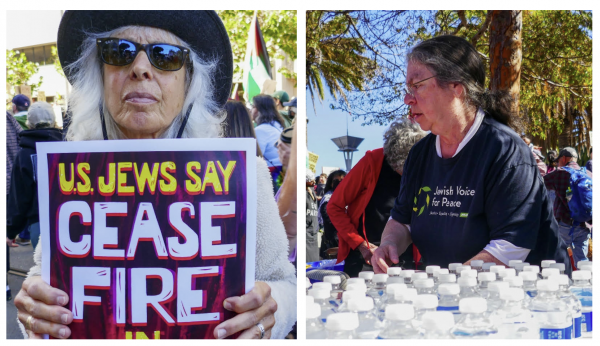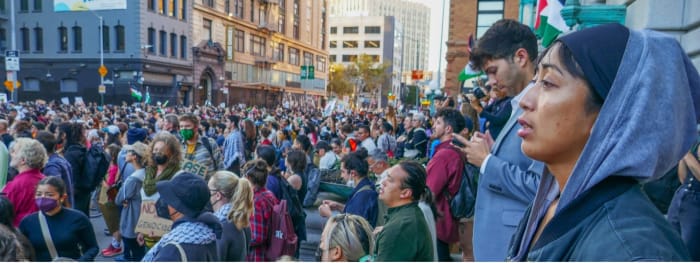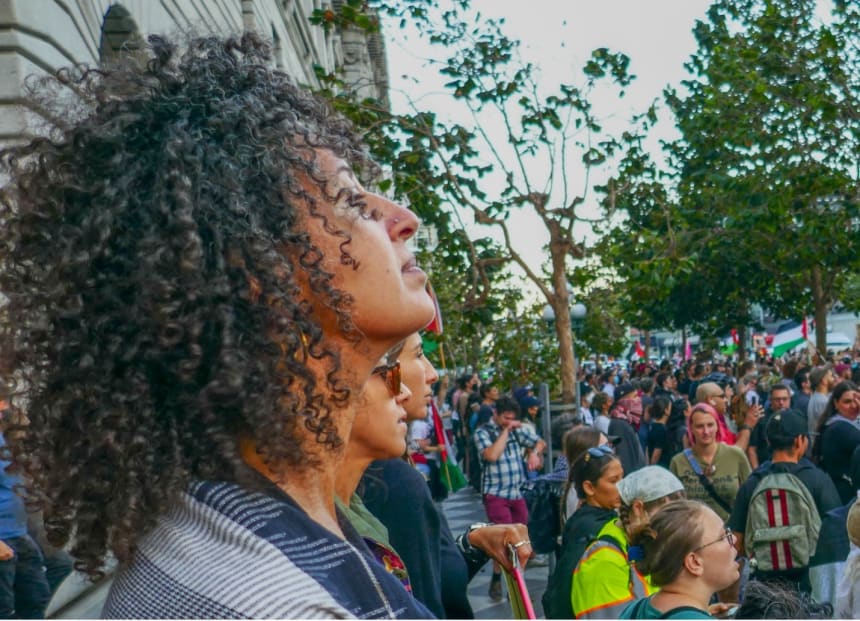December 2nd marked the 200th anniversary of the Monroe Doctrine, which proclaimed US dominion over Latin America and the Caribbean. Left-leaning governments in the hemisphere have had to contest a decadent but still dominant USA. Challenges in the past year include a world economic slowdown, a continuing drug plague, and a more aggressive hegemon reacting to a more volatile and disputed world order.
The progressive regional current, the so-called Pink Tide, slackened in 2023 compared to the rising tide of 2022, which had been buoyed by big wins in Colombia and Brazil. Progressive alternatives had floated into state power on a backwash against failed neoliberal policies. Now they have had to govern under circumstances that they inherited but were not their own making. Most importantly for progressives once in power are whether they have sufficient popular support and a program commensurate with achieving significant economic and social goals.
Ebb and flow of the Pink Tide – Peru, Guatemala, and Ecuador
Peru. A case in point was the presidency of Pedro Castillo. From a nominally Marxist-Leninist party in Peru, he had neither a sufficient program nor the electoral mandate to resist the traditional oligarchy. Castillo was imprisoned a year ago on December 7 via a complicated parliamentary maneuver. Dina Boluarte assumed the post to become Peru’s seventh president in eight years. Beloved by what Bloomberg calls the “business class,” she had a single-digit approval rating from the larger population as she spent this year presiding over a contracting economy in harsh recession.
While Boluarte may be facing murder charges for the violent repression of continuing mass protests, former president Alberto Fujimori was just sprung from prison. Fujimori had not completed his sentence for crimes against humanity, but was given a humanitarian pardon, despite a request from the regional Inter-American Court of Human Rights to delay his release. Castillo is still in prison.
Guatemala. In a surprise break from right-wing rule in Guatemala, political dark horse Bernardo Arévalo won the presidential runoff election in August. Ever since, the entrenched oligarchy has tried to disqualify the winner. Despite popular demonstrations in his support and even murmurings from the US State Department to maintain the rule of law, it remains to be seen if the president-elect will be allowed to be sworn into office on January 14.
Ecuador. The corrupt right-wing president of Ecuador, Guillermo Lasso, faced popular protests, out of control narcotics-related violence, a dysfunctional economy, and a hostile parliament. He came within a hair’s breadth of being impeached on May 17. At the very last moment, Lasso invoked the uniquely Ecuadorian muerte cruzada (mutual death) constitutional provision.
This allowed him to dissolve the National Assembly and rule by decree but with the subsequent requirement for snap elections to replace both the legislators and the executive. On October 15, the mandated presidential election brought in another rightist, Daniel Noboa, who will serve the remaining year and a half of the presidential term. Noboa’s father, the richest person in Ecuador, ran unsuccessfully for the presidency six times.
Argentina takes a sharp right turn
Argentina is a case study of how, when the left fails to take the initiative, the popular revolt against neoliberalism can take a sharp right turn. Javier Milei’s win was symptomatic of what Álvaro García Linera, former leftist vice president of Bolivia, observed as a shift to more extreme right-wingers (e.g., free market fundamentalists) and more timid progressives (e.g., social democrats).
In a typically Argentine que se vayan todos (everyone leave) moment, harking back to 2001 when mass popular discontent precipitated five different governments in a short period of time, the self-described anarcho-capitalist Milei won the presidential runoff by a landslide on November 19.
Sergio Massa, who ran against Milei, was the incumbent economic minister in the administration of Alberto Fernández, which had broken with the more leftist wing of the Peronist movement associated with Vice President Cristina Fernandez (no relation). With 143% inflation rate and 18 million in poverty, the Peronists were booted out by an alternative that promises to realign the second largest economy in South America with the US and Israel and away from its main trading partners Brazil and China.
The left-centrist Peronists had in turn inherited a made-to-fail economy due to excessive debt obligations incurred by former right-wing president Mauricio Macri’s mega IMF loan. Ironically, the current Pink Tide wave is commonly thought to have begun with the defeat of Macri by the Fernandez’s in 2019. Now Macri has teamed up with the ultra-right Milei. Officials from Macri’s old administration, such as Patricia Bullrich and Luis Caputo, are in Milei’s new ministries.
Venezuela resists
Venezuela provides a counter example to Argentina. The possessor of the world’s largest oil reserves appeared to be on the ropes back in the dark days of 2019-2020. US Secretary of State Mike Pompeo triumphantly predicted Venezuelan President Nicolás Maduro’s “days are numbered.” Over 50 countries had recognized the US puppet pretend-president Juan Guaidó including Venezuela’s powerful and (at the time) hostile neighbors, Colombia and Brazil. With the handwriting on the wall spelling imminent collapse, the Communist Party of Venezuela jumped ship from the government coalition.
Against seemingly unsurmountable odds, President Maduro led a remarkable turnaround. By year end 2023, Venezuela had achieved nine quarters of consecutive economic growth across all economic sectors. The Orinoco Tribune reports inflation down from triple digits. Still the most vulnerable have least benefited from the recovery.
Venezuelan special envoy Alex Saab, meanwhile, is in his third year behind bars, now languishing in a Miami prison. The imprisoned diplomat helped circumvent the illegal US blockade of Venezuela by obtaining humanitarian supplies of food, medicine, and fuel from Iran in legal international trade.
Opposition-aligned Venezuelan economist Francisco Rodriguez now admits the US hybrid war against Venezuela has so far “failed,” although he still shamelessly calls Washington’s campaign to overthrow the democratically elected president an effort “to push Venezuela back toward democracy.”
Given the successful resistance, the Biden administration has been compelled to modify its tactics, although not its ultimate goal of regime-change, by easing some of its sanctions against Venezuela. Because the relief is explicitly temporary, the implicit threat is that full sanctions would be reimposed if Maduro is reelected. This, in effect, is a form of election interference.
Behind the temporary easing of sanctions is surging immigration to the US, posing a vulnerability for Biden’s 2024 reelection bid. Immigration from sanctioned Venezuela, along with Cuba and Nicaragua, is driven in large part by conditions created by the US sanctions. Even corporate media are increasingly making this connection with the coercive US policy. A letter to Biden from 18 House Democrats urged sanctions relief.
Also with an eye to reelection, Biden is hoping to stimulate Venezuelan oil production lest the US-backed wars in Ukraine and Palestine cause fuel prices to rise. If the US does not walk back on the sanctions relaxation, Venezuela’s oil company could increase state revenues, which would be applied to social programs.
Over a year ago, the Venezuelan government reached an agreement with opposition figures and Washington for releasing $3.2b of its own illegally seized assets. So far, nothing has been forthcoming. The best relief would come if the US simply released what lawfully belongs to Venezuela.
Regional economic and climate prospects
Last year’s post-Covid regional economic rebound had run its course by 2023. The World Bank currently projects a 2.3% regional growth rate for the year, described as “regressed to the low levels of pre-pandemic growth” due partly to lower global commodity prices and rising interest rates. Real wages have remained stagnant and declined for older adults.
Since the pandemic, an estimated 1.5 years of learning have been lost, especially impacting the youngest and most vulnerable. In the context of declining economic conditions, the region is experiencing the worst migration crisis in its history with recent surges from Venezuela (4.5-7.5m) and Haiti (1.7m) adding to the more usual sources of Mexico and Central America.
In addition, extreme weather events driven by climate change have displaced 17 million people. The World Bank warns that by 2030, 5.8 million could fall into extreme poverty, largely due to a lack of safe drinking water along with exposure to excessive heat and flooding. Foreshadowing future scenarios, drought in Argentina contributed to a crashing economy which was a factor in the far-right presidential win in November.
2023 has been the hottest year in the millennium. The Mexican daily La Jornada reported that the much anticipated mid-December COP28 climate summit in Dubai concluded with at best “small achievements” and with the road to renewables proceeding at a “snail’s pace.”
The other pandemic – illegal drugs
Related to deteriorating economic conditions for the popular classes region-wide has been a continuing drug pandemic. The role of the US and its Drug Enforcement Administration (DEA), active in most countries in the region, is problematic. Washington’s staunchest allies repeatedly turn out to be major drug pushers. Former Honduran President Juan Orlando Hernández is now in US federal prison on drug charges. However, former Colombian President Álvaro Uribe, the person credited for kick starting the Medellin Cartel, remains free.
Mexico, Honduras, and Venezuela have all had to call in their militaries in major operations to wrest control of their prison systems and even parts of their national territories from narcotics cartels. According to the Amnesty International, El Salvador is experiencing the worst rights causes since the 1980-1992 civil war under President Nayib Bukele’s controversial crackdown on gangs.
US Treasury Secretary Janet Yellen visited Mexico in December in the midst of the fentanyl flood. The corporate press in the US continuously runs sensational reports about drug kingpins in Latin America but curiously none on our side of the border. Not simply under-reported, but unreported, is how the illegal substances get distributed in the US. How is it that the US is the biggest illicit drug consumer, but we don’t hear about cartels at home?
US military projection
Drug trafficking and popular unrest, both exacerbated by precarious economic conditions, have been capitalized by the US to further project its military presence in the region. Washington is by far the largest source of military aid, supplies, and training.
US military strategy in the region has pivoted from fighting communism and “terrorism” to containing China and, to a lesser extent, Russia and Iran. China is now the leading trading partner with South America and the second largest with the region as a whole, after the US. Some 20 regional countries have joined China’s Belt and Road Initiative (BRI).
China’s official policy on relations with the US is based on mutual respect, peaceful coexistence, and win-win cooperation, predicated on the understanding that “the common interests of the two countries far outweigh their differences.” US official policy, on the other hand, is “full spectrum dominance.”
Laura Richardson, head of the US Southern Command, met with Brazilian and Colombian military brass in May. Previously, she had visited Argentina, Chile, Guyana, and Surinam. When asked about her interest in the region, she unapologetically admitted that the US seeks hegemony over the region and possession of its rich resources.
In May, Peru brought in US Marines and special forces. In October, the US got the UN Security Council to approve the military occupation of Haiti using proxy troops from Kenya, even though the operation would not be under its auspices. Moreover, history shows occupation is the root problem. Also in October, Ecuador approved deploying US troops there plus US funding for security programs.
The annual CORE23 exercises, held in November by combined Brazilian and US forces, were designed to achieve military interoperability. Last year, joint Brazilian and US troops practiced war games against a “hypothetical” Latin American country (e.g., Venezuela) experiencing a humanitarian crisis. This month, Mexico and Peru joined the annual US naval Steel Knight exercises.
By December, the disputed Essequibo territory between Venezuela and Guyana became an international flashpoint. The US Southern Command announced joint air operations with Guyana. What is in essence an oil company land grab by ExxonMobil is disrupting regional unity and is a Trojan horse for US military interference. US boots are already reportedly on the ground in Guyana. However, the leaders of Guyana and Venezuela met on December 14 and pledged to resolve the conflict peacefully.
End note for the year 2023 – Sanctions Kill!
While Washington may seek to accommodate social democracies such as Colombia and Brazil by cooption, nothing but regime ruination is slated for the states explicitly striving for socialism: Venezuela, Cuba, and Nicaragua.
Sanctions on Venezuela – started by Obama, intensified by Trump, and seamlessly continued by Biden – have taken its toll: over 100,00 death, 22% of the children under five stunted, 2.4 million food insecure, over 300,00 chronic disease patients without access to treatment, 31% of the population undernourished, 69% drop in goods and services imports, deteriorated infrastructure, and accelerated migration and brain drain.
Despite the UN nearly unanimously condemning the US blockade of Cuba for its devastating effects on civilians and as a violation of the UN Charter, the ever-tightening economic warfare has left the island in crisis. Reuters reports that the production of staples pork, rice, and beans is down by more than 80%. Cuba has only been able to import 40% of the fuel requirement while industry is operating at 35% of capacity.
The Trump/Biden “maximum pressure” campaign has produced its desired effect of a catastrophic situation in Cuba. Biden imposed additional sanctions in November and has continued his predecessor’s policy of keeping Cuba on the list of state sponsors of terrorism.
While sanctioned by Washington, the current hybrid war on Nicaragua has been less intense and prolonged than that endured by Cuba and Venezuela. Nicaragua left the Washington-based Organization of American States (OAS) on November 19. Foreign Minister Denis Moncada said good riddance to what he called an “instrument of US imperialism.”
Cuba, Venezuela, and Nicaragua have achieved so much with so little. The World Economic Forum commended Nicaragua for being the country in Latin America that made notable progress in reducing the gender gap. The World Wildlife Fund certified Cuba as the only country in the world to have attained sustainable development. The Harvard Review of Latin America praised Venezuela for cutting poverty in half before the sanctions set in. Imagine what could be accomplished if the hegemon’s boot was removed from their necks.
The post Year 2023 in review for Latin America and the Caribbean first appeared on Dissident Voice.This post was originally published on Dissident Voice.



















